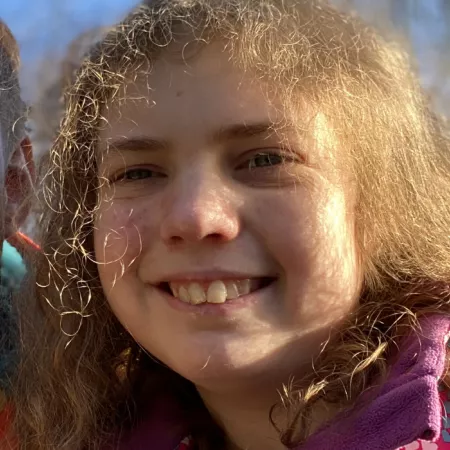1 in 3 children with epilepsy let down by inadequate support at school
We found worrying disparities across the UK in school policies and support for young people living with epilepsy after over 1,000 families from across the country responded anonymously to our survey about the support they received at school during the 2021/22 academic year.
Epilepsy can have a significant impact on a child’s experience of school life. Whilst at school, children may depend on staff to recognise and respond to seizures, as well as understand the wider impact that the condition can have on learning and behaviour.36% of young people and parents reported not getting the support they need for full participation in school life. Shocking reports from young people show how schools are failing some children living with epilepsy as clearly outlined by one young person surveyed sharing
The school were happy for me to be at home. Not their problem if not on site.Shared by young student
Schools in the UK are required to have policies in place to ensure that children with epilepsy (and other long-term conditions) get the support they need for full participation in school life. Every child with epilepsy should have an Individual Healthcare Plan (IHP) for school, setting out information about their condition and the support they need to be safe and included at school.
These new statistics show that 44% of young people with epilepsy don’t currently have an Individual Healthcare Plan. Without this IHP school staff are left in the dark about how to respond to a child’s seizures and what support they need at school.
“School had no care plan in place despite being informed of his condition 3 years ago. Support has been shocking.” (Parent)
Even for those with an Individual Healthcare Plan there were still 64% that did not include how epilepsy might affect their learning and 26% had not been reviewed in the last 12 months. How are young people living with epilepsy expected to thrive at school when school staff do not understand their needs?
The government guidelines already require schools to set out their policies on supporting children with health conditions, yet in those families surveyed only 29% had seen their school’s policy. Young Epilepsy is calling for all schools to publish their policy on their websites so that families understand what support arrangements should be in place.
Without the proper support and understanding of their individual needs, children with epilepsy are often simply left out, leading to a very different school experience to their peers.
As one parent shared “They think the different colours contribute to his seizures, colours do NOT at all. I've explained this to them. They still don't allow him in the coloured playgrounds. This is where children of his own age are, he is being separated from peers for no good reason. This is making him sad, depressed and lonely.”
Sadly, 21% of young people told us they were excluded from activities and opportunities at school, with some pupils being prevented from taking part in sports and important milestones in school life, such as residential trips, prom and school photos.
Heart-breaking comments show the effect of these decisions on young people living with epilepsy “I wasn’t allowed to do any PE or the like all year even though given the okay by the doctors and medical team.”
While another young person shared that “I wasn’t allowed to participate in school trips due to the risk of having a seizure, even on small local trips.”
Young people with epilepsy have a right to an inclusive education just as any other child in the UK and the stark contrast between the way long-term health conditions are treated by schools across the country tells a worrying tale of mixed messages and a lack of understanding about how epilepsy affects young people.
As explained by a concerned parent that shared “in general this and every school my daughter has been to do not disclose to staff that she has epilepsy. The head first-aider knows but everyone else is not informed. One previous primary said they can't disclose due to GDPR.”
Young Epilepsy is calling for:
- Every child with epilepsy to have an individual healthcare plan (IHP) for school, setting out information about their condition and the support they need to be safe and included at school.
- Every school to put their medical conditions policy on their website, showing how they will support the full participation of children with long-term conditions.
If you are a young person with epilepsy at school (or their parent), you can:
- Ask your school for an individual healthcare plan (IHP)
- Ask the school to publish their medical conditions policy on their website
- Share our Guide for Schools with your teachers: www.youngepilepsy.org.uk/guideforschools





